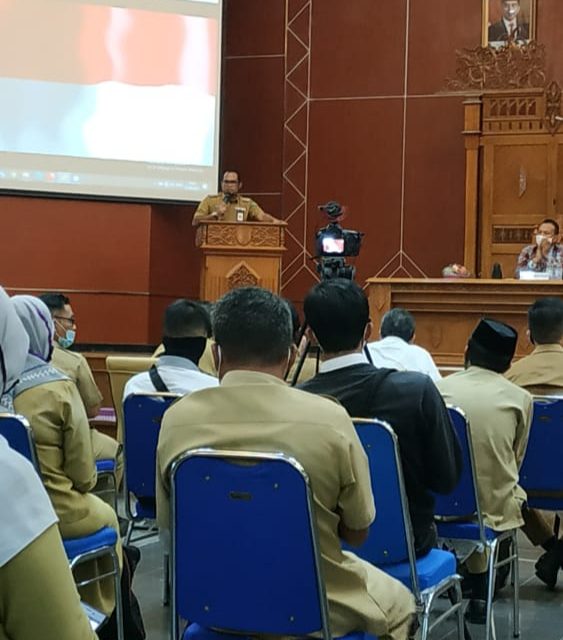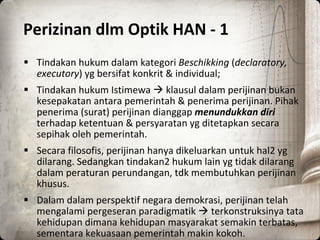Mewujudkan Tata Kelola Keuangan Yang Transparan dan Akuntabel Pemkab Kutim Mulai Terapkan
Mewujudkan Tata Kelola Keuangan yang Transparan dan Akuntabel
One of the most important things for any organization is transparent and accountable financial management. This is essential to ensure that there is no corruption or misuse of funds, and that the money is used in the best interests of the people.

So it’s great to see that the government of Kutim is taking steps to improve its financial management practices, and to make them more transparent and accountable. This is particularly important given the many challenges facing the country at the moment, including economic uncertainty and political instability.
What is Tata Kelola Keuangan?
Tata kelola keuangan is the practice of managing financial resources in an organization in a way that is transparent, accountable, and efficient. It involves putting in place systems and processes that ensure that finances are managed effectively, that there is no corruption or misuse of funds, and that the money is used in the best interests of the organization and its stakeholders.
Why is Tata Kelola Keuangan Important?
There are many reasons why tata kelola keuangan is important. First and foremost, it ensures that financial resources are managed efficiently and effectively. This helps to ensure that the organization can achieve its goals and objectives, and that it is able to use its resources in the most effective way possible.
Secondly, tata kelola keuangan is important for transparency and accountability. By putting in place systems and processes that ensure that funds are managed in a transparent and accountable way, it is possible to reduce the risk of corruption and misuse of funds, and to promote greater trust and confidence in the organization and its leadership.
Finally, tata kelola keuangan is important for ensuring that financial resources are used in the best interests of the organization and its stakeholders. This means that the organization is able to make better decisions about how to allocate funds, and that it is able to respond more effectively to changes in the economic and political environment.
The Benefits of Tata Kelola Keuangan
The benefits of tata kelola keuangan are many and varied. Some of the key benefits include:
- Improved financial performance and accountability
- Greater transparency and trustworthiness
- Reduced risk of corruption and misuse of funds
- Improved decision-making and resource allocation
- Greater ability to respond to economic and political changes
Ideas for Implementing Tata Kelola Keuangan
Implementing tata kelola keuangan can be a complex process, but there are a number of key ideas that organizations can use to get started:
- Develop a clear set of financial management policies and procedures
- Ensure that all financial transactions are recorded and tracked
- Establish clear lines of responsibility and accountability
- Conduct regular audits and reviews
- Communicate financial information to stakeholders in a clear and transparent way
How to Implement Tata Kelola Keuangan
Implementing tata kelola keuangan can be a complex process, but there are a number of steps that organizations can take to make it easier:
- Ensure that all financial management policies and procedures are documented and communicated clearly to staff and stakeholders
- Provide training and support to staff on the various aspects of financial management, including budgeting, forecasting, and reporting
- Implement tools and systems that make it easier to manage financial transactions and track expenses
- Establish clear lines of responsibility and accountability, and ensure that these are communicated clearly to staff and stakeholders
- Conduct regular audits and reviews of financial management practices, and use the findings to identify opportunities for improvement
Tips for Successful Tata Kelola Keuangan Implementation
Implementing tata kelola keuangan can be challenging, but there are a number of tips that can help organizations to be successful:
- Start with a clear plan and set of goals
- Involve staff and stakeholders in the process from the beginning
- Communicate regularly and openly about the progress of the implementation process
- Be prepared to adapt and change course as needed
- Celebrate successes and acknowledge challenges along the way
Overall, the implementation of tata kelola keuangan is an essential step for any organization that wants to ensure transparency, accountability, and effective use of financial resources. With careful planning, effective implementation, and ongoing review and improvement, organizations can achieve these goals and reap the many benefits that come with them.
Mewujudkan Tata Kelola Pemerintahan yang Baik Melalui Pembenahan Sist…
Mewujudkan Tata Kelola Pemerintahan yang Baik Melalui Pembenahan Sist…
Good governance is essential for any country to thrive, and this is particularly true when it comes to financial management. Effective tata kelola pemerintahan requires a commitment to transparency, accountability, and effective use of financial resources, and this is something that is increasingly recognized as essential for the success and stability of any country.

What is Tata Kelola Pemerintahan?
Tata kelola pemerintahan is the practice of governing in a way that is transparent, accountable, and responsive to the needs of citizens. This involves putting in place systems and processes that ensure that governance is carried out effectively, that there is no corruption or misuse of public funds, and that the needs and interests of citizens are taken into account in all decision-making processes.
Why is Tata Kelola Pemerintahan Important?
There are many reasons why tata kelola pemerintahan is important. First and foremost, it is essential for transparency and accountability. By putting in place systems and processes that ensure that government is carried out in an open and transparent way, it is possible to reduce the risk of corruption and misuse of public funds, and to promote greater trust and confidence in the government and its leadership.
Secondly, tata kelola pemerintahan is important for ensuring that the needs and interests of citizens are taken into account in all decision-making processes. This means that governments are able to make better decisions about how to allocate resources, and that citizens are able to participate more fully in the democratic process.
Finally, tata kelola pemerintahan is important for ensuring that public resources are used in the best interests of citizens. This means that governments are able to make better decisions about how to invest in public services and infrastructure, and that citizens are able to enjoy a higher standard of living as a result.
The Benefits of Tata Kelola Pemerintahan
The benefits of tata kelola pemerintahan are many and varied. Some of the key benefits include:
- Improved transparency and accountability in government
- Greater participation and engagement of citizens
- Reduced risk of corruption and misuse of public funds
- Improved decision-making and resource allocation
- Greater ability to respond to the needs of citizens
Ideas for Implementing Tata Kelola Pemerintahan
Implementing tata kelola pemerintahan can be a complex process, but there are a number of key ideas that governments can use to get started:
- Develop a clear set of governance policies and procedures that ensure transparency and accountability
- Ensure that all decision-making processes are open and inclusive, and that citizens are able to participate fully in the democratic process
- Invest in infrastructure and public services that benefit citizens directly
- Establish clear lines of responsibility and accountability, and ensure that these are communicated clearly to citizens
- Conduct regular reviews of governance practices, and use the findings to identify opportunities for improvement
How to Implement Tata Kelola Pemerintahan
Implementing tata kelola pemerintahan can be a complex process, but there are a number of steps that governments can take to make it easier:
- Ensure that all governance policies and procedures are documented and communicated clearly to citizens and government officials
- Provide training and support to public officials on the various aspects of governance, including budgeting, policy-making, and decision-making
- Implement tools and systems that make it easier to manage decision-making processes and track outcomes
- Establish clear lines of responsibility and accountability, and ensure that these are communicated clearly to citizens and government officials
- Conduct regular reviews of governance practices, and use the findings to identify opportunities for improvement
Tips for Successful Tata Kelola Pemerintahan Implementation
Implementing tata kelola pemerintahan can be challenging, but there are a number of tips that can help governments to be successful:
- Start with a clear plan and set of goals that reflect the needs and interests of citizens
- Involve citizens and government officials in the process from the beginning
- Communicate regularly and openly about the progress of the implementation process
- Be prepared to adapt and change course as needed
- Celebrate successes and acknowledge challenges along the way
Overall, the implementation of tata kelola pemerintahan is an essential step for any government that wants to ensure transparency, accountability, and effective use of public resources. With careful planning, effective implementation, and ongoing review and improvement, governments can achieve these goals and reap the many benefits that come with them.
Kasus Korupsi Bupati Nganjuk Dampak Politik Berbiaya Mahal
Kasus Korupsi Bupati Nganjuk Dampak Politik Berbiaya Mahal
Corruption is one of the biggest challenges facing any society, and it is particularly damaging when it occurs at the highest levels of government. When leaders engage in corrupt practices, it can erode public trust and confidence in government, and undermine the stability and prosperity of the society as a whole.

What is the Kasus Korupsi Bupati Nganjuk?
Kasus korupsi bupati nganjuk is a high-profile corruption case in which the former bupati (regent) of Nganjuk, Indonesia, was accused of engaging in corrupt practices during his time in office. The case has had a significant impact on politics and society in the region, and is seen as a prime example of the damaging effects of corruption on government and the public.
Why is the Kasus Korupsi Bupati Nganjuk Important?
The kasus korupsi bupati nganjuk is important for several reasons. First and foremost, it is a reminder of the damaging effects of corruption on society and government. When leaders engage in corrupt practices, it erodes public trust and confidence in government, and creates a culture of impunity that can be difficult to overcome.
Secondly, the kasus korupsi bupati nganjuk is important because it highlights the need for greater transparency and accountability in government. By putting in place systems and processes that ensure that government officials are held accountable for their actions, it is possible to reduce the risk of corruption and promote greater trust and confidence in government and its leadership.
Finally, the kasus korupsi bupati nganjuk is important because it serves as a wake-up call for governments and societies to take action against corruption. This requires a commitment to implementing effective anti-corruption policies and procedures, and to promoting greater transparency and accountability in government and society as a whole.
The Benefits of Anti-Corruption Measures
The benefits of anti-corruption measures are many and varied. Some of the key benefits include:
- Improved transparency and accountability in government and society
- Greater trust and confidence in government and its leadership
- Reduced risk of corruption and misuse of public funds
- Improved decision-making and resource allocation
- Greater ability to respond to the needs of citizens
Ideas for Implementing Anti-Corruption Measures
Implementing anti-corruption measures can be a complex process, but there are a number of key ideas that governments and societies can use to get started:
- Develop a clear set of policies and procedures that ensure transparency and accountability in government and society
- Establish clear lines of responsibility and accountability, and ensure that these are communicated clearly to citizens and government officials
- Invest in anti-corruption training and education for government officials and citizens
- Implement tools and systems that make it easier to report and track instances of corruption
- Conduct regular reviews of anti-corruption policies and procedures, and use the findings to identify opportunities for improvement
How to Implement Anti-Corruption Measures
Implementing anti-corruption measures can be a complex process, but there are a number of steps that governments and societies can take to make it easier:
- Ensure that all anti-corruption policies and procedures are documented and communicated clearly to citizens and government officials
- Provide training and support to government officials and citizens on the various aspects of anti-corruption measures, including reporting and tracking instances of corruption
- Implement tools and systems that make it easier to report and track instances of corruption
- Establish clear lines of responsibility and accountability, and ensure that these are communicated clearly to citizens and government officials
- Conduct regular reviews of anti-corruption policies and procedures, and use the findings to identify opportunities for improvement
Tips for Successful Implementation of Anti-Corruption Measures
Implementing anti-corruption measures can be challenging, but there are a number of tips that can help governments and societies to be successful:
- Start with a clear plan and set of goals that reflect the needs and interests of citizens and government officials
- Involve citizens and government officials in the process from the beginning
- Communicate regularly and openly about the progress of the implementation process
- Be prepared to adapt and change course as needed
- Celebrate successes and acknowledge challenges along the way
Ultimately, the kasus korupsi bupati nganjuk is a stark reminder












